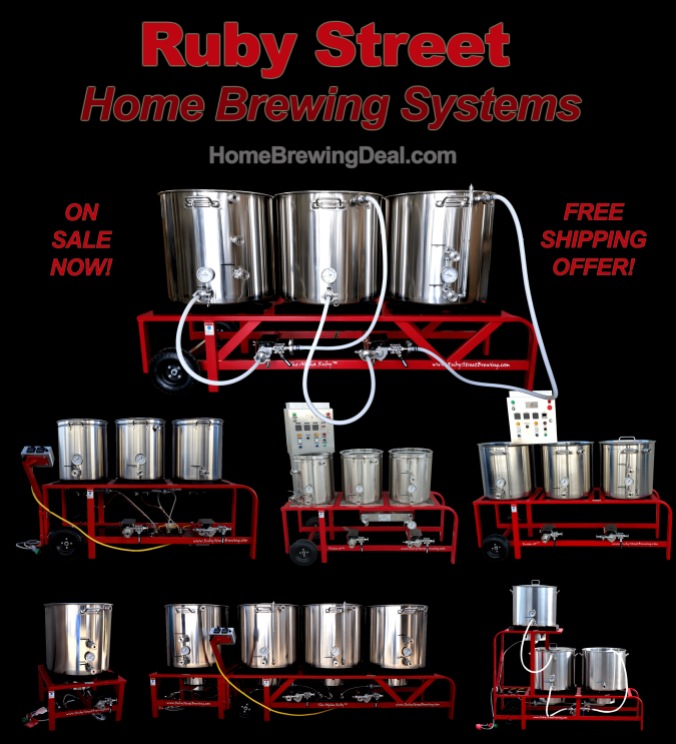
Converting A Home Brewery To Natural Gas
I do not know about you, but I am not the biggest fan of having to store and maintain propane tanks. They take up space, run out of gas in the middle of a boil, the pressure changes when the tank gets too low and they are expensive to refill; and all the while I have natural gas available 10 feet away from my home brewery. So I decided that I would try converting my banjo burners from propane to natural gas. Let me start off by saying that I am not a professional plumber, a mechanical engineer, or a scientist that specialized in flammable gasses; so you should consult a professional. PLEASE CONSULT A LICENSED HEATING PROFESSIONAL FOR INFORMATION ON CONNECTING YOUR OUTDOOR BURNER TO YOUR HOUSE NATURAL GAS.
My home brewing setup uses 3 banjo burners and a 120v electric RIMS system to generate heat. So my first step was purchasing the natural gas valve to replace my existing propane valve. Since natural gas is pushed with a lower pressure than compressed liquid propane, you can not simply use the same valve. The good news is that the replacement valve is not that expensive.
Williams brewing sells the valve for $9.99 and this Banjo Burner natural gas conversion valve is compatible with the Bayou Classic KAB4, KAB6, and BG14 Banjo burner. To use this valve, you will need a gas connection hose with a 3/8″ female flare end to attach to this valve to your natural gas source. This valve has an orifice diameter of approximately 1/8″, and features 1/4″ male npt threads to attach to your gas burner. These home brewing burner natural gas conversion valves also fit the Blichmann Top Tier Burners and Blichmann Floor standing burners. You can see the difference in the two burner valves in the following photo.

Converting Bayou Home Brewing Burners to Natural Gas
The natural gas replacement valve is on the left. You can see the gas outlet diameter is much larger than the propane on the right.
The process was pretty painless and I was able to replace all three burner valves and test for leaks in about 60 minutes. I used natural gas safe teflon sealant on all of the valves. One important factor to keep in mind is that natural gas is lower pressure than propane and you are going to put out less BTUs than you would with a propane tank. So if you were already struggling to achieve a boil with a propane tank, converting to natural gas is probably going to be a bad idea. I have yet to test how long it takes to reach a boil, but the flame tests all look great so far!

Converting A Home Brewery From Propane to Natural Gas
Once I have the test in, I will let you know how it work out!
















Recent Comments